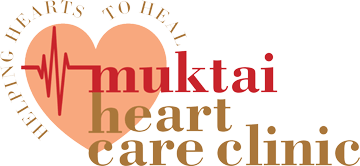
23 Feb Know your fats
Here’s what you need to know about adding fat to your diet.
- Monounsaturated Fats: Liquids at normal temperatures, these plant-based fats can lower cholesterol when used instead of saturated fats in the diet.
- Sources: Canola, olive oil, and peanuts; nuts; pecans; and avocado.
- Polyunsaturated Fats: These fats found in plants and fish can lower cholesterol when they replace saturated fats in the diet. Fatty fish such as salmon and tuna contain omega-3 fatty acids, a group of polyunsaturated fats that keep the heart healthy, even if eaten in small amounts.
- Sources: Vegetable oils such as fluffy, sunflower, soybeans, corn, and sesame oil; sunflower seeds; soybeans; oily fish such as tuna, mackerel, and salmon; and many nuts.
- Saturated Fats: Highly concentrated in animal products, these saturated fats increase harmful LDL cholesterol and increase the risk of cardiovascular disease.
- Sources: Beef, lamb, pork, bacon, cheese, fatty yogurt, butter, and whole milk. Snack chips and tropical bakery products such as coconut, palm, and palm kernel also have this oil, which is strong at room temperature.
The key to good fat is to choose wisely and use them sparingly. For example, use only small amounts of cheese to enhance the flavor of the dish, or make vegetables more of an ingredient than meat. If you are eating red meat as a major course, stick to the recommended serving size — 3 ounces, or about the size of a deck of cards on your plate. For dairy products, choosing 1% or fat-free options helps reduce the amount of saturated fat in your diet.
- Trans fats: Produced when liquid oils are processed into solids, trans fats (also known as hydrogenated fats) raise LDL (“bad”) cholesterol and lower HDL (“good”). Cholesterol.
- Sources: Foods can store trans fats if they are made from partly hydrogenated fats. Since January 2006, the Food and Drug Administration has required all food producers to indicate the number of trans fats in the diet. (Food for less than half a gram of trans fat per serving can be labeled “trans-fat-free.”) Some meats and dairy products contain small amounts of natural fat. It is not known whether these oils have the same harmful effects on your health as fat produced.
Go for whole grains
Studies show that eating only 21/2 bowls of cereal a day is enough to reduce your risk of heart disease. (One meal is equivalent to a slice of 100% whole wheat bread or 1/3 cup of brown rice cooked.) And many grains appear to be associated with a lower risk of obesity, diabetes, high blood pressure, and high cholesterol.
Focus on healthy eating, and strive for diversity
- Eat at least 3.5 3.5 ounces of fish a week, preferably oily fish like salmon, tuna, or mackerel.
- Eat at least 4 servings of nuts, grains, and seeds per week.
- Choose whole grains full of fiber and eat at least 3 times a day.
- Limit sugary drinks to no more than 450 calories (36 ounces) per week.
- Limit minced meat to no more than 2 times a week.
- Reduce saturated fats and trans fats to less than 7% and 1%, respectively, of the total energy available.
- Choose fruits and vegetables from all colors of the rainbow — make sure you eat at least 4 1/2 cups a day.


